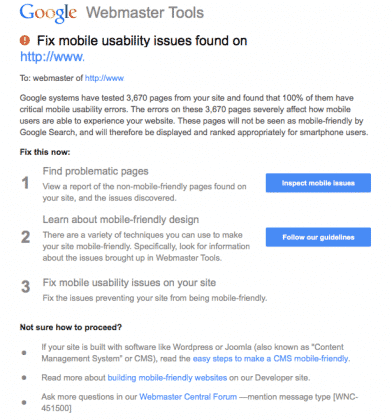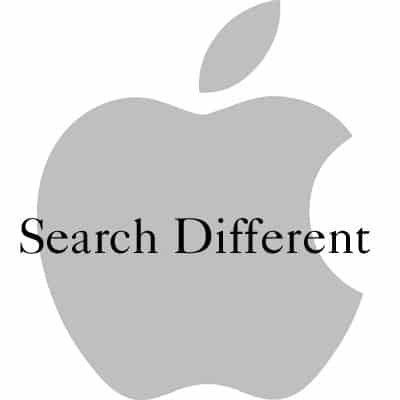This time of year, online marketing blogs are full of…
predictions for the coming year.

While nobody has really made this prediction yet, the writing is on the wall:
Search is evolving beyond just Google.
It may not be this year, or even next, but one day in the not-so-distant future, people will find your business in ways you have not imagined.
Eric Schmidt, Chairman of Google, even goes so far as to say that the internet as we know it will disappear. “There will be so many IP addresses … so many devices, sensors, things that you are wearing, things that you are interacting with that you won’t even sense it. It will be part of your presence all the time. Imagine you walk into a room, and the room is dynamic. And with your permission and all of that, you are interacting with the things going on in the room.”
That makes sense, and coming from the big cheese at Google, it’s a pretty credible prediction.
Are you ready for your refrigerator to notice when you are running out of your favorite beverage, and suggest places to buy it?
But let’s assume that is not happening within the next year or two. What about the mid-range future of SEO in the next couple of years… or right now?
Going Mobile
 People are already searching in ways other than using a PC to search from Google.com. Mobile devices have obviously caught on and are now the main way many people connect to the internet. As of July 2014, roughly one third of all organic searchers were using some type of mobile device.
People are already searching in ways other than using a PC to search from Google.com. Mobile devices have obviously caught on and are now the main way many people connect to the internet. As of July 2014, roughly one third of all organic searchers were using some type of mobile device.
Just recently, Google sent out a huge number of warnings to websites that are not “mobile friendly”. Even if you did not get a warning, do yourself and your site’s visitors a favor and make it look and work nice on all devices, please. Mass-messages like this from Google are often a “warning shot” before they make a drastic change to the algorithms.
Searching Without Google
“Do you Yahoo?”
 Since Google still holds onto about 60% of the search market share, many people ignore Yahoo, Bing, and other search engines. Smart marketers know where their search traffic comes from, and some do focus on the other search engines if a significant portion of the site’s audience regularly uses them.
Since Google still holds onto about 60% of the search market share, many people ignore Yahoo, Bing, and other search engines. Smart marketers know where their search traffic comes from, and some do focus on the other search engines if a significant portion of the site’s audience regularly uses them.
Recently, there have been a few newsworthy shifts in the search industry that may give more marketers an incentive to pay attention to other search engines.
Firefox Switches Its Default Search to Yahoo
Just two weeks after the Firefox browser’s default search engine was switched from Google in November 2014, Yahoo jumped from around 9% market share to 29%. Check your analytics – seeing more Yahoo organic search visits? It might be time to take another look at Yahoo (and Bing, since they use much of the same data and technology).
Apple
“Search Different”

Is Apple building an iSearch Engine?
Apple and Google have had a rather rocky relationship over the years. They currently have an agreement to keep Google as the default search option in Safari for both iOS and OSX which will expire in early 2015. Will Apple also switch to Yahoo or Bing? Stranger things have happened.
For local search, Apple already uses a variety of non-Google sources like Yelp and TomTom, as well as their own local business data in the iOS and OSX Maps app. Siri uses Bing, so if a large percentage of your audience is using iOS (and they are!), you’ll want to pay a some attention to those other search engines.
And then there are rumors of Apple developing its own search engine, supported by reports of websites being “crawled” by Apple. Could be something to do with Apple’s Spotlight desktop search, Siri, Maps, or just the App Store… but let’s not forget the late Steve Jobs’ quote:
“…I will spend every penny of Apple’s $40 billion in the bank, to right this wrong. I’m going to destroy Android, because it’s a stolen product. I’m willing to go thermonuclear war on this.”
While there may not be an iSearch Engine in the near future, with iOS devices holding onto a large piece of the search market, you can safely assume that more people will “search different” soon enough.
What Now?
The internet does change at a fast pace, but a massive shift from Google search to whatever eventually replaces it is not likely to happen quickly. Keep moving forward with Google as your main focus in search, but do keep an eye on where your audience is and how they find things, whether it is from a different search engine, a phone, a watch, or even a household appliance. Diversify your website’s traffic sources between different search engines, social media, and other sources.
The key thing to do in order to be found in any future search methods is likely to be the same as it is with Google now:
Be Worth Finding



